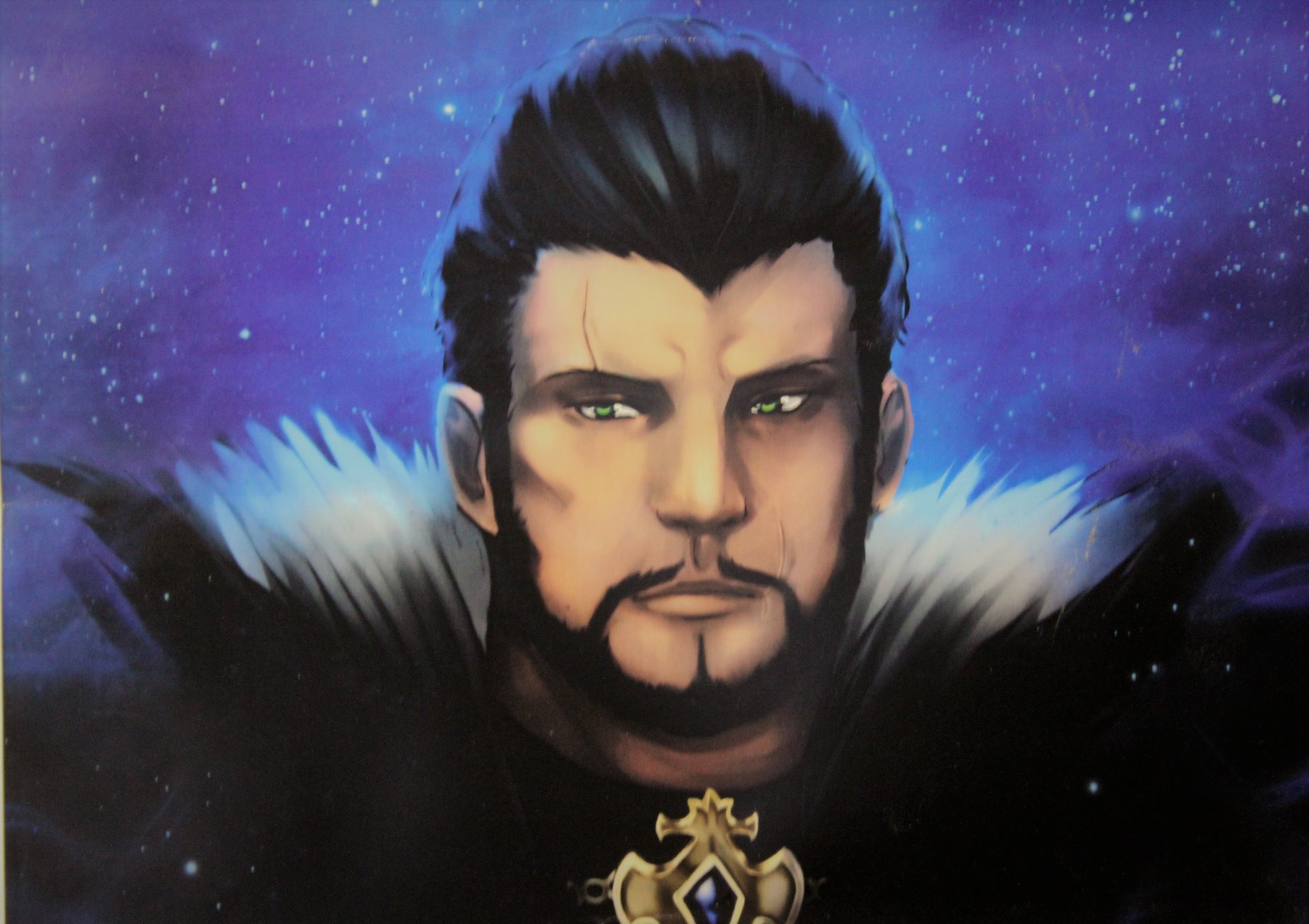I've noticed my obsessive tendencies seem to be getting worse. I should probably see a doctor at some point about it, I guess. Sometimes it's gotten really bad, and I mean I actually can't sleep because I'll be obsessing over one thing or another for hours. It's really had an affect on my game play as well.
During this lull until EW, I'm reminded why I do not play games with battlepass systems. For example, I kept playing Warframe long after I got tired of it a month ago, just to finish their 'nightwave' season on the correct number - because it shows what you got in prior seasons. It's not just that though, in RPG games it's actually horrific. I'll delete a 100 hour save and redo it all the 'right' way if something that happened along the way is 'wrong'. Been playing Skyrim lately, and I'll reload a save over and over and over just so I can approach a conversation the 'right' way, or if I did something out of order - that's a deleted character. I deleted a character the other day I spent 30 hours on due to this.
Endwalker can't come fast enough, I just want to sit here obsessing over new matching glams or something minor. At least then, it's persistent and I don't waste so much time. I remember people talking in the past about me calling FFXIV my "main" game, or rather how it shouldn't really be a main game or something like that. I literally can't have more than one "main" online game, because I actually don't have the time (or money) to continuously obsess over things in more than one.
This reminds me, this was a thing even back when I was playing SWTOR as a late teen. I would be called slow constantly by clanmates when we'd be leveling new alt characters. Due to that games RPG nature, I would play it like an RPG. This means me deleting characters if I did something 'wrong', watching and reading every single dialogue - whether I've seen it before on a prior character or not, matching outfits, etc. I can't imagine playing that with the even worse tendencies I have now!FFXIV has been fairly accommodating for me in comparison. I mean, except for my past fantasia spending, and that time I was trying to get a house. It's probably one of the least stressful games I can play.
Thread: Off Topic Discussion Megathread
-
10-05-2021 01:44 PM #351Player

- Join Date
- Feb 2017
- Location
- Gridania
- Posts
- 7,073
- Character
- Sturm Churro
- World
- Marilith
- Main Class
- White Mage Lv 100
(6)Last edited by SturmChurro; 10-05-2021 at 02:34 PM.
WHM | RDM | DNC
-
10-05-2021 02:48 PM #352Player

- Join Date
- May 2014
- Location
- The Interdimensional Rift
- Posts
- 3,600
- Character
- Vicious Zvahl
- World
- Excalibur
- Main Class
- Machinist Lv 100
Sounds rough, Storm Churro. :/
Kind of reminds me of how I used to play games like Dragon Age or Knights of the Old Republic. I never deleted characters that were very far along, but I'd delete a character right away if I got bad vibes from them or something didn't feel right. Or if I lost a tough encounter early on.
Finally got broken of that in Mass Effect 1 with the asteroid DLC. The Batarians were gonna drop an asteroid on a human colony with like 4.4 billion people. The way I read what was going on the first time, the option presented was to stop the Batarian and let the science team hostages die, or let the asteroid hit the planet. I was quite miffed when the Renegade option was saving the 4.4 billion colonists(you'd think saving 4.4 billion vs. saving 5 individuals would be Paragon, but nooooooo). Turned out that saving the scientists was Paragon, and all that happens is the Batarian leader gets away. We succeed in stopping the asteroid. It pissed me off, because it made me realize it was really a non-choice, especially when in the third game, you can run into that Batarian again, only now he's dying painfully and slowly in a refugee camp from some illness.
Like, yeah, that was me misreading the situation. Still made me realize that the choices we get to make, particularly in video games, can never really communicate right and wrong choice. They can show it, to some extent, but they lack proper consequences for most of the choices. The other thing that goes with the Batarian getting away, is that he could have setup with another batch of raiders, and ran more attacks on future colonies, which is why they tie him up all nice and neat in a, "Dying from the Space Plague" bow. And he makes sure to mention that he couldn't get back up and running and junk, even before the space plague. It's infantile when you analyze it. God forbid we're forced to think in a game where we're supposed to be weighing our choices heavily at each and every venture.(3)
(Signature portrait by Amaipetisu)
"I thought that my invincible power would hold the world captive, leaving me in a freedom undisturbed. Thus night and day I worked at the chain with huge fires and cruel hard strokes. When at last the work was done and the links were complete and unbreakable, I found that it held me in its grip." - Rabindranath Tagore
-
10-05-2021 03:10 PM #353Player

- Join Date
- Feb 2017
- Location
- Gridania
- Posts
- 7,073
- Character
- Sturm Churro
- World
- Marilith
- Main Class
- White Mage Lv 100
Well, I don't mean 'right' or 'wrong' in sense of morality necessarily, but literally out of order. For example, when I hit whiterun in Skyrim, I always have to talk to certain NPCs out of routine. If I don't.. it makes no sense. My character always has to go there in this order, and everything has to be organized this way. I cannot play alternate start mods, because it makes no sense in the majority of dialogues; the game wasn't made for it. So I spend 6 hours every single character doing the same thing, because it's the the right way to do it.
My characters in any game will not wear or use items that do not match - whether they are BiS or not. Luckily games like FFXIV allow me to glamour over it. I should say, morality choices can be an issue. If I cannot resolve a situation the way I think this particular character would do it: that's a deleted character. In other RPGs if I don't do things in the right, meticulous order, I might not be able to resolve a situation the way I think that character would do it. If I want to play a game like the Witcher 3, I have to play The Witcher 1, and 2 first, so I can have continuity. Any RPG with direct sequels. In pillars of eternity 2, I had a character I spent over 100 hours that I transferred to it from 1. It made one choice I didn't like after further thought. So I deleted it, and restarted anew in 1, and have been working on that character for a couple years now, and I cannot play the second again until I finish it in the first.
In FFXIV, it doesn't hit as hard because it's actual canon or whatever that they have this weird time thing, so I can go back and complete old content out of order. Choices are effectively non-existent (let's be real), I can glamour most things acceptably, etc. I have put so much time in this game, that I can ignore a lot of what would stress me out in other games. That isn't to say I don't get annoyed by some things. Like on my character profile, I have BLU leveled to like 16 or something. It's an ugly number, it's bad. Same with some of the crafters. I either need to finish it, or not do it at all. That's part of the reason I haven't touched others (they are also boring to me). That, and my inventory organization is really bad, I've been ignoring that for a very long time, and that needs to be cleaned up badly. I don't want to touch crafter/gatherers because it will only make that worse, and I'll have to actually deal with it to play them. I do get annoyed by the lack of organization, but as long as I can ignore it, I don't have to stress about it as much. Once I start actively having to look at it, like finding crafting mats, that's when I have to stress about it.(4)Last edited by SturmChurro; 10-05-2021 at 03:22 PM.
WHM | RDM | DNC
-
10-05-2021 03:14 PM #354Player

- Join Date
- Sep 2013
- Posts
- 10,051
- Character
- Matthieu Desrosiers
- World
- Cerberus
- Main Class
- Reaper Lv 90
It depends on the game but sometimes I also get a bit carried away in regards to trying to create what I see as a 'perfect' playthrough. When it comes to being forced to make choices, I'm guilty of looking up a guide to see what happens so I can figure out what outcome I'll enjoy more between the options available to me.
The Witcher 3 and Fallout: New Vegas are solid examples of games I've enjoyed playing where the consequences that arise from quests have made me pause and think. Sadly a lot of RPG's seem to be stripping away choice in favour of 'cinematic' experiences.(6)
-
10-05-2021 03:28 PM #355Player

- Join Date
- May 2014
- Location
- The Interdimensional Rift
- Posts
- 3,600
- Character
- Vicious Zvahl
- World
- Excalibur
- Main Class
- Machinist Lv 100
Oh. Well, I suffer from that too. Just not in every game. It's definitely why I don't like speed running either.
In Dark Souls, the NPCs have very convoluted questlines that you probably won't figure out your first time through without a guide. Once I knew about them, it was sort of a death knell for speed. I can only barely force myself to ignore certain NPCs and move on. I like to save all of them, and get them to Firelink Shrine. Buy their wares, chat them up, and listen to them talk. It's a compulsion.
Even if I'm playing a STR based Himbo who will never use Sorcery, I will raise my sorcery to the point where I can buy Bighat Logan's spells right off the bat.
I always go save Rhea of Thorolund from the Tomb of Giants, even if I have no intention of using Miracles in the playthrough.
Sometimes when I force myself to break the mold, I won't delete the character... at least not for a long while. They'll sit there, taking up space, and by the time I want to play the game again I'll look at them and think, "Oh, they killed so and so, and they didn't talk to this one NPC, so now their options are limited. Might as well start a new character."
I definitely don't suffer in the way or as bad as you, but I kind of get what you're saying.(3)
(Signature portrait by Amaipetisu)
"I thought that my invincible power would hold the world captive, leaving me in a freedom undisturbed. Thus night and day I worked at the chain with huge fires and cruel hard strokes. When at last the work was done and the links were complete and unbreakable, I found that it held me in its grip." - Rabindranath Tagore
-
10-05-2021 03:35 PM #356Player

- Join Date
- Feb 2017
- Location
- Gridania
- Posts
- 7,073
- Character
- Sturm Churro
- World
- Marilith
- Main Class
- White Mage Lv 100
Yep, I will do the same thing with many games. I will deliberately spoil myself, so I can get the ending I think the character should get. It eventually turns into doing everything in very specific orders to get that perfect playthrough, on top of some other routines my character must do.
There's a reason for it, that's because it takes good writing, and a lot of time/resources. Game developers also want players to see all the content, and sometimes they want you to experience the story the way they think you should experience in. It reminds me of Cyberpunk 2077: a fake RPG. I absolutely despised the story in that game, and hated the ending, on top of it not being an RPG. I felt railroaded into certain ending(s). I haven't touched the game since it came out, actually I never finished it in the first place, because of these issues. Once I spoiled myself it was too late, but I think I would have felt worse after all those hours spent to see that as my ending. What a waste. Usually if you want a good RPG experience, you have to go indie nowadays - not mmorpg experience though... Indie mmorpgs just don't work out. Heck, most AAA mmorpgs don't work out, it's why I still consider FFXIV the best one available with little proper competition.(2)Last edited by SturmChurro; 10-05-2021 at 03:38 PM.
WHM | RDM | DNC
-
10-05-2021 05:20 PM #357Player

- Join Date
- Dec 2020
- Location
- Interdimensionality
- Posts
- 2,134
- Character
- C'erise Vanesse
- World
- Maduin
- Main Class
- Red Mage Lv 90
*mumbles* Something something new world... something something jeff bezos... /lh
So many people are going to leave New World, so many people are ALREADY one foot out the door. It's... poorly executed and poorly planned. On top of this, MMORPGs are a saturated market - you have a huge crowd of kMMOs and their whales, gacha-games that also target the MMORPG mobile market with poorly implemented PC ports, singleplayer RPGs, and the dozens to hundreds of flop MMORPG crowdfunds/crowdfunding scams. It's nearly impossible for indie MMOs to make a dent in the market, and the AAA companies that try quickly realize they have NO IDEA what they're doing and their MMOs go under extremely quickly.
Sad, really. I'd love an MMO with the amazing graphics of kMMOs, the story-driven nature of JRPGs, and the ability to understand their audiences wants...
Maybe I really just want a graphical overhaul of FFXIV :P
-
10-05-2021 05:56 PM #358Player

- Join Date
- May 2014
- Location
- The Interdimensional Rift
- Posts
- 3,600
- Character
- Vicious Zvahl
- World
- Excalibur
- Main Class
- Machinist Lv 100
*Continues being one of the drum beaters that's kept FFXI going for 20 years*
I'm always sort of surprised when new MMOs without anything longstanding to back up a guaranteed starter playerbase hit the market. I hear about them, and they don't catch my interest at all.(2)
(Signature portrait by Amaipetisu)
"I thought that my invincible power would hold the world captive, leaving me in a freedom undisturbed. Thus night and day I worked at the chain with huge fires and cruel hard strokes. When at last the work was done and the links were complete and unbreakable, I found that it held me in its grip." - Rabindranath Tagore
-
10-05-2021 06:09 PM
Player
- Reason
- not worth helping
-
10-05-2021 06:35 PM #359
The MMO market is super saturated and aren't as profitable vs. maintenance cost. So the risk of a bust is real in an age of gaming where companies are scared to innovate and want to stick with formulaic titles or just go for the easy money with gacha games and Surprise Mechanics in $60 releases.
When(if) it comes out, I think the League of Legends MMO is gonna show what the future entails for the MMO genre. Riot has the money, the expertise, the lore to supply a online world(even if you don't like the LOL or Legends of Runeterra). Do they stick to the current MMO formula, go the more RPG-MMO route like 14 or try to strike at something new and original and take that big chance. If it succeeds maybe another AAA sized company or two with a storied series(wishful thinking Nintendo doesn't have a mainline MMO) will give it a go.(2)
-
10-05-2021 06:45 PM
Player
- Reason
- ASDSAD
-
10-05-2021 06:48 PM
Player
- Reason
- bad chat
-
10-05-2021 07:35 PM #360Player

- Join Date
- May 2014
- Location
- The Interdimensional Rift
- Posts
- 3,600
- Character
- Vicious Zvahl
- World
- Excalibur
- Main Class
- Machinist Lv 100
(1)
(Signature portrait by Amaipetisu)
"I thought that my invincible power would hold the world captive, leaving me in a freedom undisturbed. Thus night and day I worked at the chain with huge fires and cruel hard strokes. When at last the work was done and the links were complete and unbreakable, I found that it held me in its grip." - Rabindranath Tagore



 Reply With Quote
Reply With Quote








